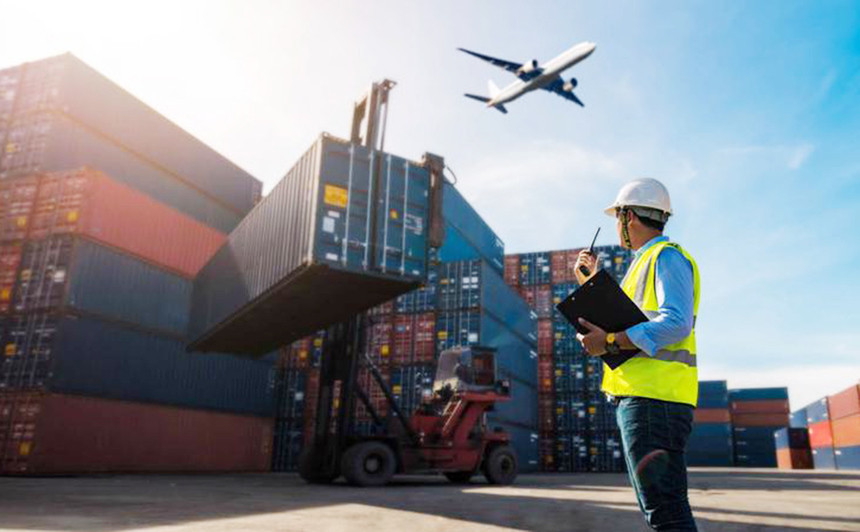Standardizing quality of stable development of the logistics sector
Thời sự - Logistics - Ngày đăng : 08:00, 07/01/2022

Vietnam’s logistics performance index improved
To have comprehensive measurement of logistics capacity, the National Logistitics Performance Index (LPI) researched by the World bank is currently one of main scales to evaluate logistics capacity of a country.
In 2018, Vietnam’s LPI was improved: from the 5th in 10 ASEAN countries, with 2.96 points, it reached the 3rd (after Singapore and Thailand) with 3.27 points- a proof for stronger development of Vietnam’s logistics sector.
According to World Bank’s assessment, in the past few years, logistics indicators related to Customs, Infrastructure, International Transport, Logistics Capacity, tracking, cargo traceability and time of logistics service performance have all been positively improved, especially logistics capacity and traceability- the two indicators that help increase scores significantly.
Quality standardizing brings stable development
Standardization helps businesses cut costs through improving their logistics systems and processes that increase the competition abilitiesof processes in logistics chains, thereby increasing customers’ satisfaction through through improving safety, quality and process.
In 2020, the Directorate of Standards, Metrology and Quality, the Ministry of Science and Technology announced national standards:
» i) TCVN 13196-2020, Transport Services - Transport Chain - Declaring System (completely equivalent to BS EN 13011:2001);
» ii) TCVN 13197-1-2020, Multimodal transport units - Labeling (completely equivalent to BS EN 13044-1:2011);
» iii) TCVN 13198-2020, Transport chain - Code of practice for provision of transport services (completely equivalent to BS EN 13876:2002);
» iv) TCVN 13199-2020, Declaration of environmental activities in transport chain (refer to CEN/TR 14310:2002);
» v) TCVN 13200-2020, Terms and definitions (completely equivalent to BS EN 14943:2020).
Occupational Standards-OS- is a set of standards of knowledge, skills and behaviors required to be employed for a particular job. Occupational Skills Standards (OSS) are skills that are essential in the job market and that will make graduates more immediately employable and productive.
Therefore, standardizing human resources is also very necessary. And employee evaluation is an indispensable job of an enterprise, playing an important role in managing the staff in working process.
Reality of quality standardizing in the field of logistics in Vietnam
The survey results from the Logistics Research and Development Institute (VLI) and the Vietnam Standards and Quality Institute (VSQI) in October 2021 showed there have been requirements to have training on dissemination and update of new legal documents in the fields of standards, metrology and quality for relating organizations and enterprises; the survey results also showed there are 58.8% of enterprises having requirements on training of building and applying advanced management systems as ISO 9001, ISO 14001, ISO 17025, HACCP, ISO 22000… Moreover, the majority of Vietnamese enterprises are small and medium-sized, accounting for about 90% (GSO, 2020), so they also suggested they need a set of appropriate national standards for small and medium enterprises; in addition, there should be standards for road gauges; standards for containers, specific standards for dangerous goods, standards for vehicles using electric energy…
the Vietnam Logistics Business Association (VLA) pays special attention to training by establishing the Vietnam Logistics Research and Development Institute (VLI) in 2010 with the mission of researching and developing high-quality logistics human resources to meet the sustainable development of the industry. In addition to training, currently VLA/VLI has been developing a set of OS/OSS occupational standards for job positions in the logistics industry. Along with suggestions and orientations from members and businesses in the industry, VLA/VLI is developing a set of work standards “Dangerous Goods Operator”. It is expected that by April 2022, the occupational skills standard for the position of Dangerous goods Operator will be released to the community and will become an important basis for the process of training, recruiting and developing employees.
After completing this position, VLA/VLI will conduct construction for many other positions in the sector to meet the needs of society.
Suggestions
First, building and improving the model of quality management. Vietnamese logistics enterprises need to invest in perfecting the logistics service quality management model to help stages in logistics service implementation process simplier and more secure. Beside the choosing the world’s advanced quality management models as ISO, SERQUAL or TQM… Vietnamese enterprises should improve functions of organization, inspection, control and adjustment. It is necessary for an enterprise to let their staff now clearly targets and work content they have to carry out.
Along with development trend of the logistics sector and the Industry 4.0, innovative logistics services have increased, requiring higher quality of human resources. The standardization from the stage of training - recruitment - employment will avoid waste for society, making the use of labor more efficient. Therefore, development of a set of occupational standards is necessary and requires the participation and enthusiastic support from relevant sidesthe State - Schools - Enterprises.
